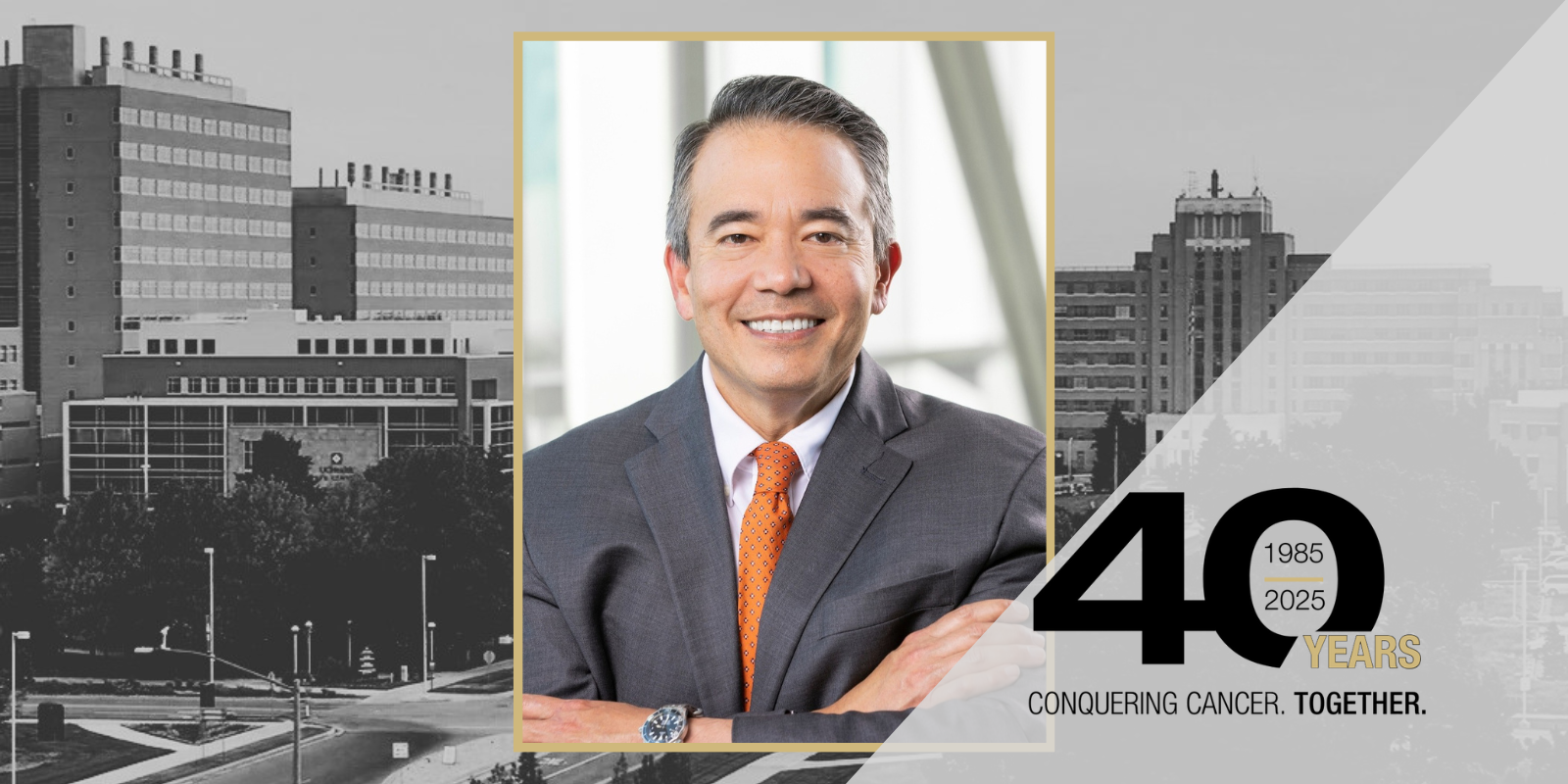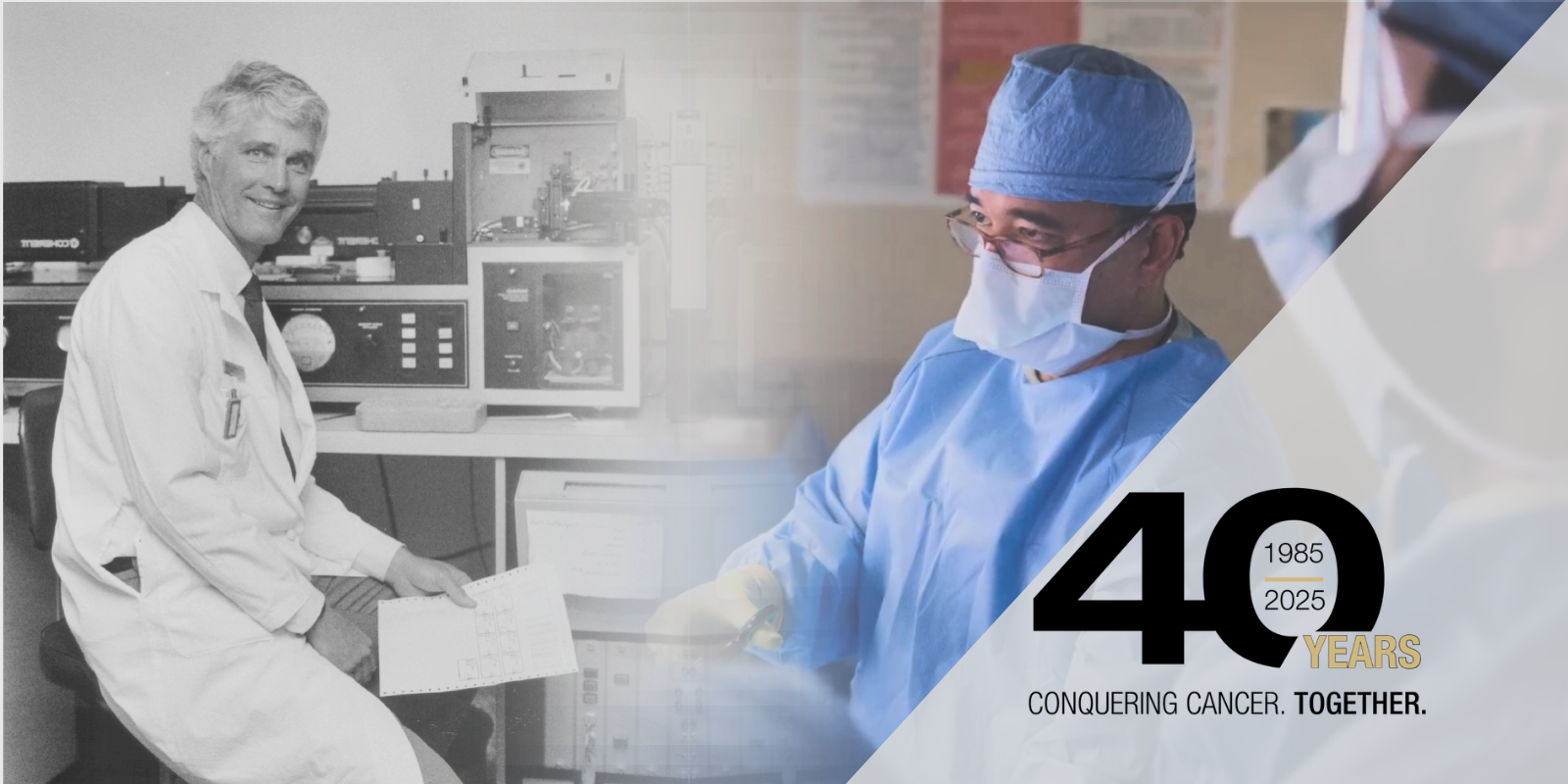Longtime University of Colorado Cancer Center member Margaret Wierman, MD, is on the case of adrenal tumors.
Wierman calls herself a “hormone detective” — a researcher investigating how sex hormones like estrogen, testosterone, and cortisol are used by cancer cells to grow and spread.
“Many cancers are hormone dependent, including prostate cancer, breast cancer, colon cancer, and some brain cancers,” says Wierman, a CU Cancer Center member since 1989. “One of the senior members of endocrinology when I came here long ago was Kate Horowitz, whose lab showed that progesterone, as well as estrogen receptors, were important in breast cancer progression. She built a large group of breast cancer researchers over the years. Many of those investigators now have their own independent careers, here and elsewhere.”
Tackling rare adrenal cancers
Much of Wierman’s recent research has to do with the treatment of adrenocortical carcinoma (ACC), a rare type of cancer that originates in the outer layer of the adrenal glands that makes hormones.
“Early on in my time at the CU Cancer Center, I saw a patient who had metastatic adrenal cancer, and I said, ‘That is not a cancer that we see very often. I'm going to learn more about it and see what's going on,’” she says. “It occurs in about one in 2 million people, and it has a horrible prognosis — less than 35% five-year survival rate.
“Dr. Katja Kiseljak-Vassiliades and I decided to create a multidisciplinary approach to ACC together with medical oncology, endocrine surgery, radiation oncology, and pathology to develop optimal clinical care, education, and new research efforts,” she continues. “At the time we started, there was only one ACC cell line in the field for research and no animal models for making advances in understanding the biology of the tumor or new treatment options. Over the past 10 years, our team has created three new cell lines that researchers across the globe use to study adrenal cancer. Funding is difficult in orphan cancers, but we are persevering.”
Surgery is the first, best option for adrenal cancer, and getting patients to a cancer center for their surgery gives them the best chance, Wierman says, but when the cancer has spread to other parts of the body, providers often prescribe mitotane, a drug approved by the FDA for the treatment of adrenal cancer.
“It's an oral medication with many endocrine side effects that works to slow tumor growth, but as a single drug — like many single drugs — it's often not effective enough,” she says. “Our lab works to understand how mitotane may work together with immunotherapy or tyrosine kinase inhibitors to change the immune environment.”
Sharing knowledge
For Wierman, lab research goes hand in hand with mentoring. For more than 20 years, she has welcomed undergraduate students interested in careers in science, giving them early exposure to the laboratory.
“It's so critical to create the interest in science and translational research when people are young,” she says. “If we don't catch them early, the chances of somebody going into research — scientific research, medical research, or cancer biology research — become slim.”
Wierman has won local, regional, national, and international awards for her mentoring efforts, and she also leads efforts to advance gender equity in the CU Department of Medicine.
“I am always looking to see how we can help people develop their skills and be the best they can be, whatever direction that happens to be,” she says.
Front-row seat
How does it feel to have been there over the past 36 years, as the CU Cancer Center has grown and expanded?
“It's been an amazing experience,” Wierman says. “Paul Bunn was the head of it for most of the time that I’ve been here, and Dr. Schulick and his team of scientists have done a consistent job of keeping it going. Watching it grow and add so many different programs — from basic and translational science to community outreach, clinical trials, outcome research, prevention and control — it's been very dramatic. It's turned into an enterprise having impact locally, regionally, and nationally to improve outcomes in cancer patients.”
Featured image: Margaret Wierman, MD, with student researchers in her lab.



.png)